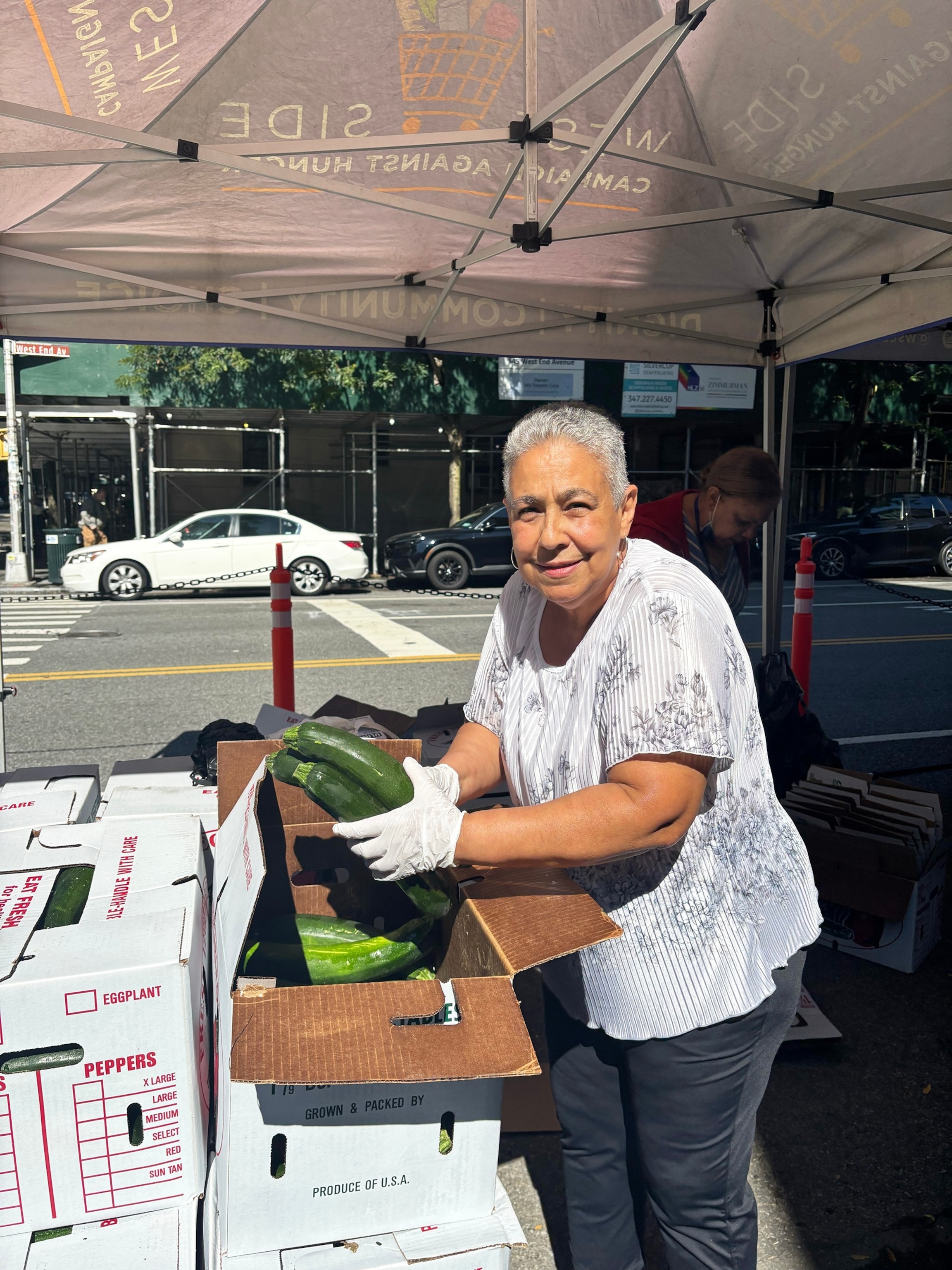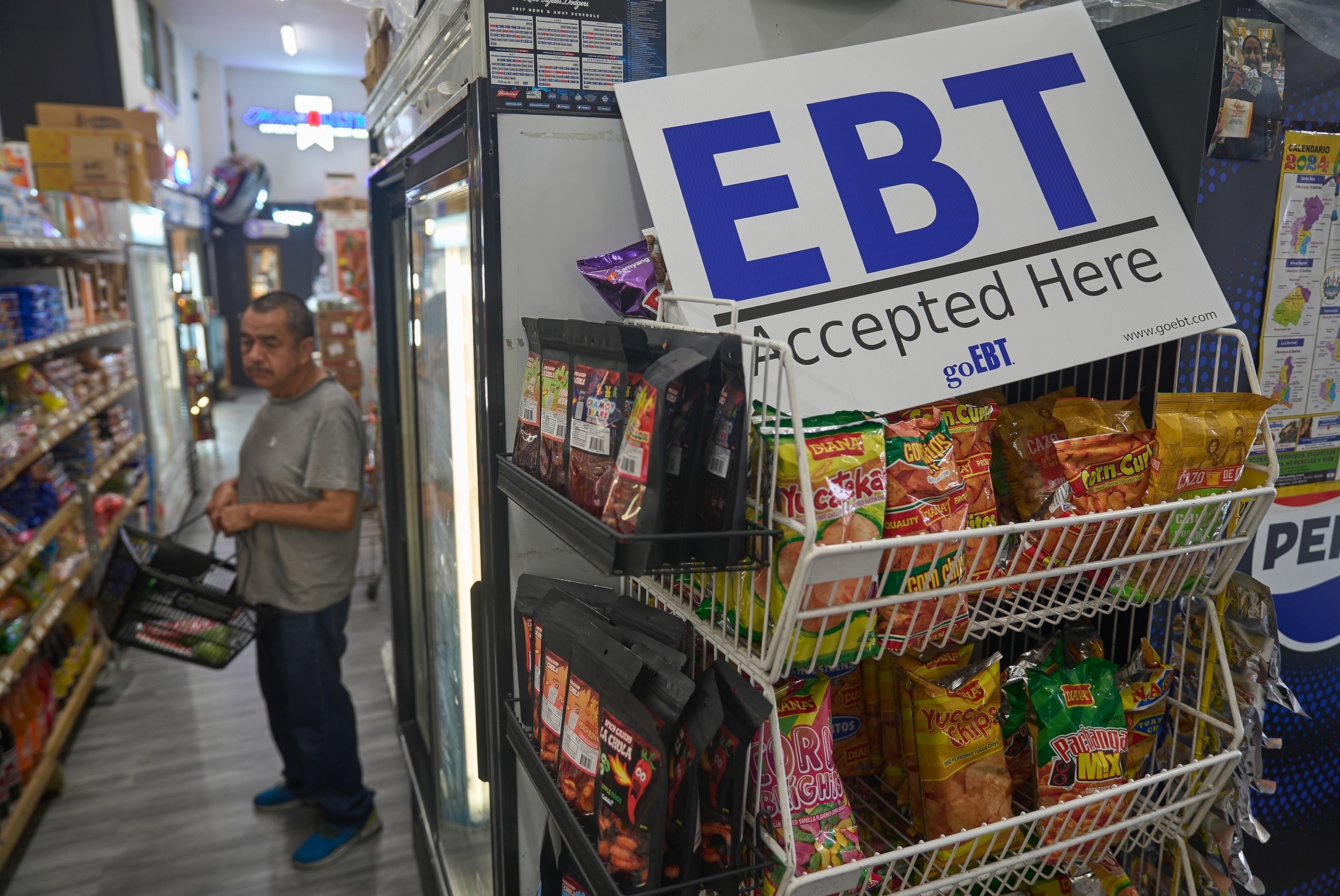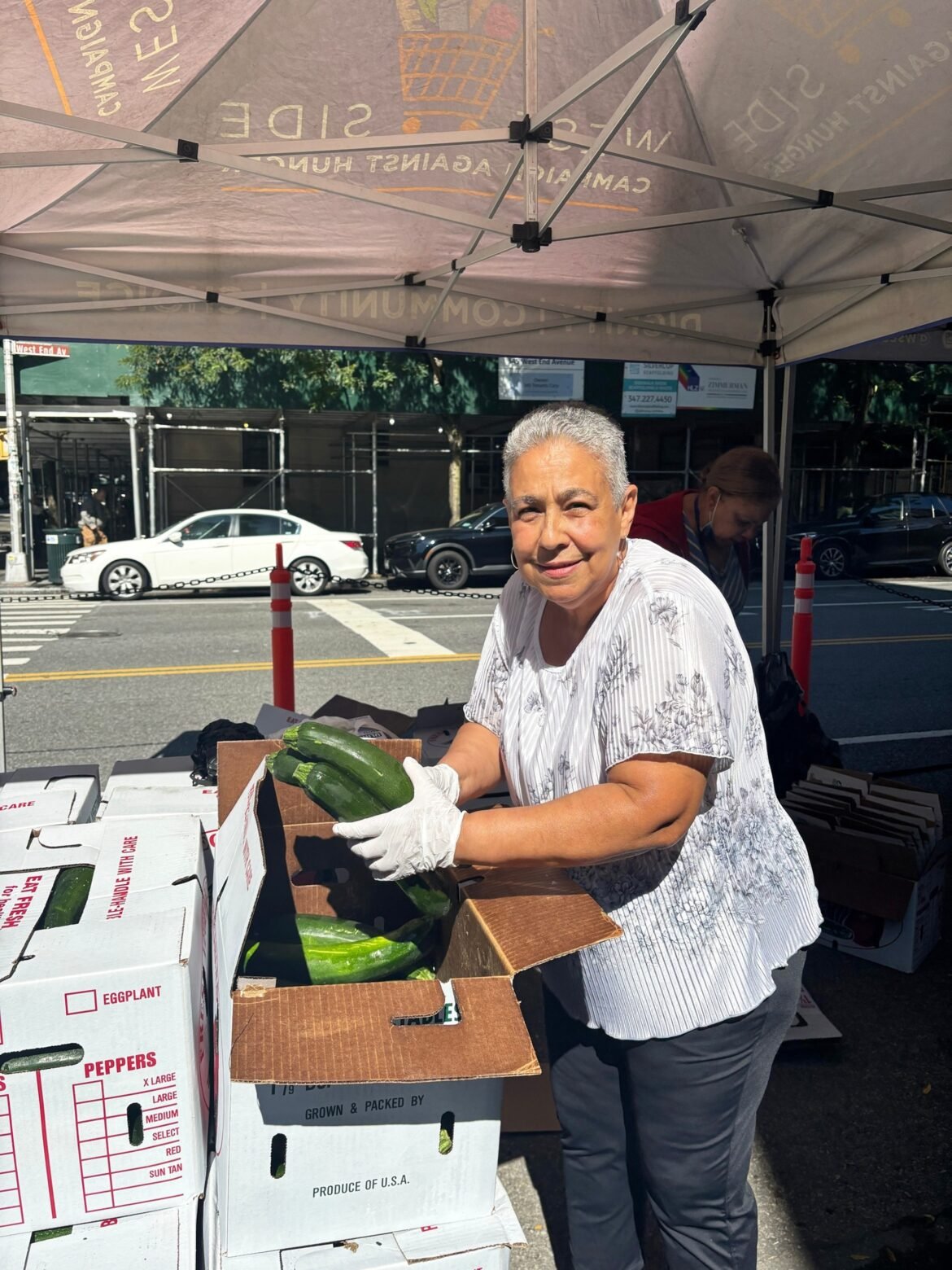For the past week, Martina Santos said she feels like she has been living a nightmare.
The 67-year-old from the Bronx, New York, is one of nearly 42 million Americans who saw their Supplemental Nutrition Assistance Program (SNAP) benefits expire on November 1.
Although the U.S. Department of Agriculture said it would partially fund the program using emergency funds, officials said it could take “a few weeks to several months.” Additionally, President Donald Trump said Tuesday that no benefits will be distributed until the government reopens.
Uncertainty over if or when SNAP benefits will be funded is leaving many Americans, like Santos, wondering if they will pay their rent, pay their bills or buy food.
“This is crazy. I’m nervous…thinking about how I can get the money to buy what I need right now, because I don’t have food stamps,” she told ABC News. “I need to make a decision if I pay rent, when I pay electricity or buy food. It’s not easy.”
Santos, who volunteers with the West Side Hunger Campaign, a nonprofit organization, said she is asking her landlord if it is possible to make a partial payment for the month of November.
She added that she will go to the pantry this week because she doesn’t have much food in her house other than packages of beans and cereal, along with a gallon of milk that her son bought her.

Martina Santos, 67, of the Bronx, New York, said she doesn’t know if she will be able to pay her rent for November because of the suspension of SNAP benefits.
Courtesy of West Side Hunger Campaign
In addition to food, Santos said the loss of profits is particularly devastating because he uses it to buy distilled water for his CPAP machine, which helps treat his sleep apnea and, in turn, his high blood pressure.
“When I don’t use the machine, the next day, [wake] I wake up tired, I don’t want to do anything, because I don’t sleep. [well]” he said. “I want to wake up. How can I get out of this nightmare right now?”
Domestic Violence Survivors Affected by Loss of SNAP Benefits
Nicole, 42, of Long Island, New York, who asked that her last name not be used, began receiving SNAP benefits in 2024 after leaving a domestic violence situation.
She receives about $994 in SNAP benefits per month to help buy food for herself and her three children, ages 12, 13 and 17, which she says is a struggle.
“Food is very expensive right now. So when you go to the stores and shop and try to budget and save, it’s just not enough,” she told ABC News. “That’s the feeling I get when I go grocery shopping. I’m a budget shopper. I try to keep an eye out for deals and just stock up and be a bulk shopper.”
Nicole said she receives cash assistance and help from her family, which has helped her cover the cost of some groceries after SNAP benefits were suspended, but added that she has occasionally been checking her mobile app to see if her EBT card balance is still at $0.
“I’ve been checking periodically to see if it says there will be food stamps available. I still have this little hope of praying it’s there,” she said. “And today I was thinking, ‘How long do you think it’s going to be? And thank God we’re getting cash assistance and some people just don’t have it. They just don’t have family.'”
He said he thinks this situation will last a couple of months and said he is using this as motivation to hopefully stop receiving SNAP benefits for good.
Nicole Branca, executive director of New Destiny Housing, a nonprofit that provides housing for domestic violence survivors and their children, said 70% of the survivors the organization serves receive SNAP benefits.
He said the loss of benefits can compound the physical and mental health problems many survivors already experience.
“Survivors of domestic violence are particularly harmed by this loss of SNAP benefits due to the economic abuse they have experienced,” she said. “Nearly 100% of domestic violence survivors experience financial abuse as part of the abuse, meaning their abuser restricted their access to bank accounts, ruined their credit, and prevented them from accessing their own paycheck. That’s why we work with them to start from scratch.”
Branca continued, “It’s very hard to find words to describe how devastating this is for our families who are just beginning to recover financially, emotionally and physically and the thought of not being able to afford food on the table for your children or having to decide between food and rent. It’s really taking a toll on our families.”

A banner reads, “EBT Accepted Here” at the El memoria market in Los Angeles on October 31, 2025.
Damián Dovarganes/AP
“Anxious and worried”
Elayne Masters, 68, of Pittsburgh, Pennsylvania, began receiving SNAP benefits in 2017 after suffering a traumatic brain injury following a fall down a flight of stairs.
In addition to his injury, Masters also suffers from hypothyroidism, which occurs when the thyroid gland does not produce or release enough thyroid hormone into the bloodstream, as well as Lyme disease, an inflammatory disease usually caused by the bite of an infected tick.
Masters typically receives about $250 in SNAP benefits, saying it allows her to purchase healthy foods that help improve symptoms such as brain fog, fatigue, confusion and joint pain.
She said her various conditions improve with a healthy diet and she worries that she won’t be able to afford nutrient-dense foods without SNAP benefits.
“Foods that are basically large amounts of vegetables, greens and fruits, help decrease the problematic health symptoms that I have and when I eat a really healthy diet, I do better, I visit the doctor less often, I take less medications. It works better,” he told ABC News.
“And when I can’t afford those healthy foods, my health and cognitive functioning get worse,” Masters continued. “If I couldn’t maintain those healthy levels of eating, because it affects me so dramatically, it’s a huge, huge difference in my quality of life and also in my ability to be a productive part of society.”
Masters said he went to a pantry last Wednesday and received a bag of packaged food after attending a meeting at the Greater Pittsburgh Community Food Bank.

Elayne Masters, 68, of Pittsburgh, Pennsylvania, said she is worried and anxious about how she will pay for food and her bills since her SNAP benefits expired.
Courtesy of Elayne Masters
She said she is “anxious and worried” about being able to pay her electric bill, her car insurance and her home insurance over the next month.
“Winter is coming and heating bills will be higher. If something breaks, I’ll be in trouble,” he said. “The holidays are coming up and I may not be able to finish buying gifts.”
In the past, to make ends meet, Masters said he has done things to extend the shelf life of his food, such as cutting mold off a block of cheese, peeling the rotten layers of an onion to get to the layers that are still good or saving vegetable scraps to make his own broth.
“I’m starting to consider, what kinds of things can I do that will help me stretch my money and some of the strategies I’ve used in the past?” said the Master. “Maybe I can skate for a month, but much longer, and it will be difficult.”


